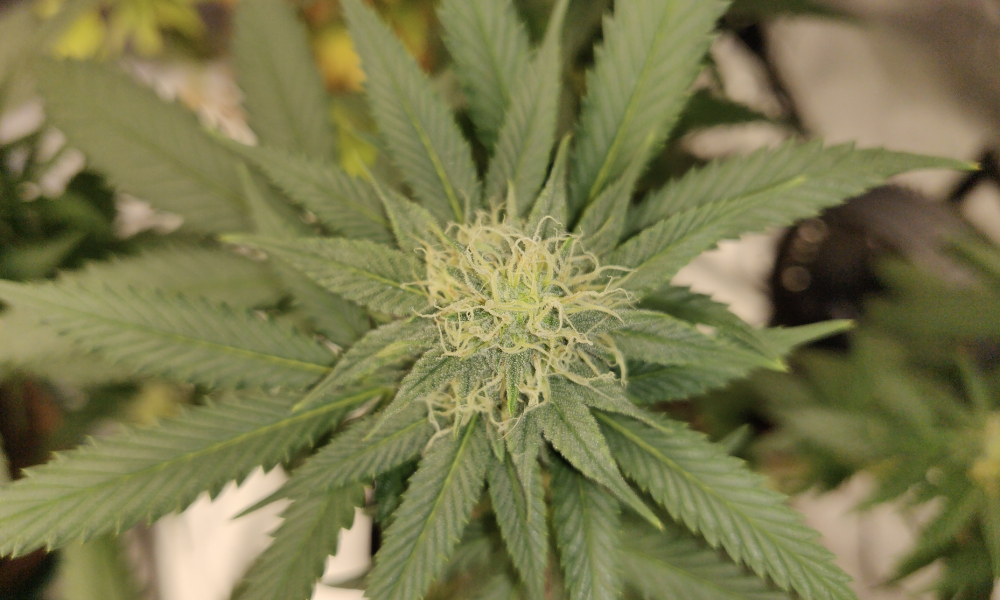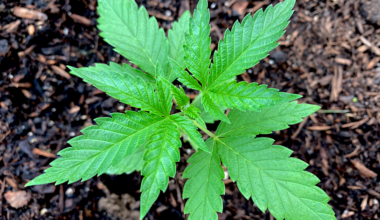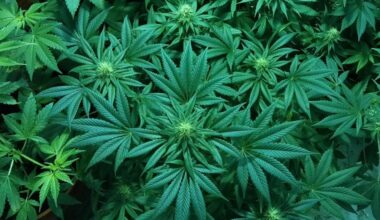Nearly one year after the Ann Arbor, Michigan City Council voted to decriminalize a wide-range of psychedelics, lawmakers on Monday approved a resolution to officially designate September as Entheogenic Plants and Fungi Awareness Month.
The measure, sponsored by Councilmember Jeff Hayner (D) and backed by Decriminalize Nature Ann Arbor, passed in a unanimous vote on Monday evening.
Text of the resolution states that certain psychedelics have been shown to have therapeutic value for mental health conditions such as post-traumatic stress disorder, severe depression and end-of-life anxiety.
It also points out that the Food and Drug Administration has granted a breakthrough therapy designation for psilocybin in cases of major depressive disorder.
“Practices with entheogenic plants/fungi have been considered sacred to human cultures and human relationships with nature for thousands of years,” the resolution says.
It further notes that, after Ann Arbor elected to make enforcement of laws against psychedelics among the city’s lowest priorities, a county prosecutor announced in January that his office will not be pursuing charges over possessing marijuana or entheogenic substances like psilocybin and ayahuasca—“regardless of the amount at issue.”
In addition to proclaiming “September to be Entheogenic Plant and Fungi Awareness Month in Ann Arbor, Michigan,” the measure says the City Council “advocates increased awareness and understanding of the potential benefits of entheogens for mental health, personal and spiritual growth, as well as honoring the long standing ancestral practices and relationships with these entheogens.”
Julie Barron, co-director of Decriminalize Nature Michigan and executive director of Decriminalize Nature Ann Arbor, told Marijuana Moment that the group is “so pleased” with the Council’s passage of the resolution, which “shows their continued support of this local movement.”
“September is gearing up to be a wonderful month here in Ann Arbor and throughout the whole state of Michigan,” she said, adding that it’s “likely that Decriminalize Nature Grand Rapids will introduce their [psychedelics decriminalization] resolution to it’s city commissioners in September, and the vote is looking very promising.”
The group said in a Facebook post that it’s working with lawmakers to introduce a statewide psychedelics decriminalization bill in the state Senate next month.
Activists in another Michigan city, Hazel Park, will also be speaking before local lawmakers on this issue on September 7, Barron said.
Psychedelics reform is also currently advancing in Easthampton, Massachusetts and Arcata, California.
Other Massachusetts cities that have enacted the policy change are: Northampton, Somerville and Cambridge. And earlier this month, state lawmakers also heard testimony about a bill to create a task force charged with studying the implications of legalizing psychedelics like psilocybin and ayahuasca.
In California, Oakland and Santa Cruz have already enacted psychedelics decriminalization.
Voters in Washington, D.C. approved a ballot measure to decriminalize psychedelics in the nation’s capital in November.
For the most part, the burgeoning psychedelics movement has been limited to decriminalization—with the exception or Oregon, where voters elected to legalize psilocybin for therapeutic purposes during last year’s election. California activists are also pushing to place psilocybin legalization on the state’s 2022 ballot as a lawmaker works to pass a separate bill to legalize possession of a wide range of psychedelics that has already passed the state Senate and two Assembly committees.
All of these latest developments are some of the latest iterations of a national psychedelics reform movement that’s spread since Denver became the first city to decriminalize psilocybin mushrooms in 2019.
The Aspen, Colorado City Council discussed the therapeutic potential of psychedelics like psilocybin and proposals to decriminalize such substances at a meeting in May. But members said, as it stands, enacting a reform would be more better handled at the state level while entheogens remain strictly federally controlled.
Seattle lawmakers also recently sent a letter to members of a local task force focused on the opioid overdose epidemic, imploring the group to investigate the therapeutic potential of psychedelics like ayahuasca and ibogaine in curbing addiction.
The psychedelics conversation is also catching on at the federal level.
But in a setback for advocates, the U.S. House of Representatives recently voted against a proposal from Rep. Alexandria Ocasio-Cortez (D-NY) that would have removed a spending bill rider that advocates say has restricted federal funds for research into Schedule I drugs, including psychedelics such as psilocybin, MDMA and ibogaine. However, it picked up considerably more votes this round than when the congresswoman first introduced it in 2019.
Report provisions of separate, House-passed spending legislation also touch on the need to expand cannabis and psychedelics research. The panel urged the National Institute On Drug Abuse (NIDA) to support expanded marijuana studies, for example
It further says that federal health agencies should pursue research into the therapeutic potential of psychedelics for military veterans suffering from a host of mental health conditions.
When it comes to broader drug policy reform, Oregon voters also approved an initiative in November to decriminalize possession of all drugs. This year, the Maine House of Representatives passed a drug decriminalization bill, but it later died in the Senate.
In May, lawmakers in Congress filed the first-ever legislation to federally decriminalize possession of illicit substances.
Photo courtesy of Wikimedia/Workman.
Medical Disclaimer:
The information provided in these blog posts is intended for general informational and educational purposes only. It is not a substitute for professional medical advice, diagnosis, or treatment. Always seek the advice of your physician or other qualified healthcare provider with any questions you may have regarding a medical condition. The use of any information provided in these blog posts is solely at your own risk. The authors and the website do not recommend or endorse any specific products, treatments, or procedures mentioned. Reliance on any information in these blog posts is solely at your own discretion.







